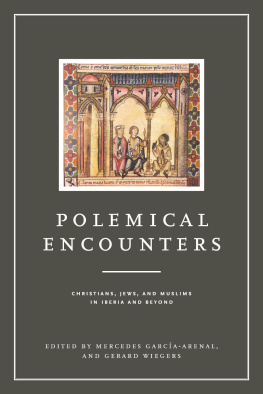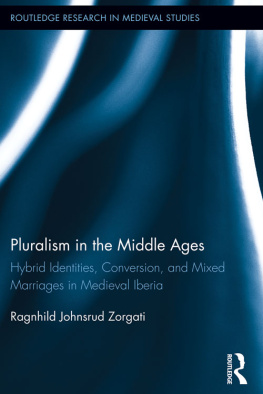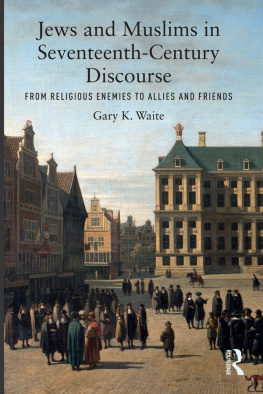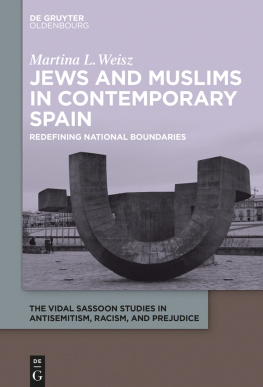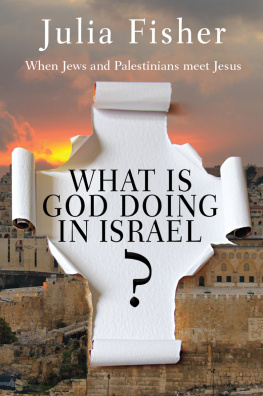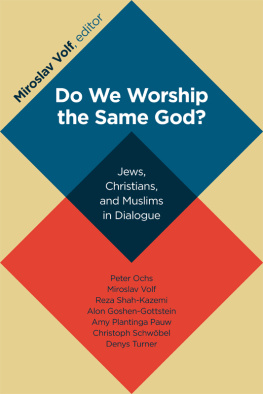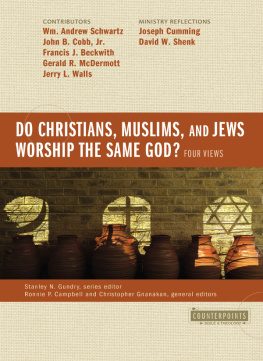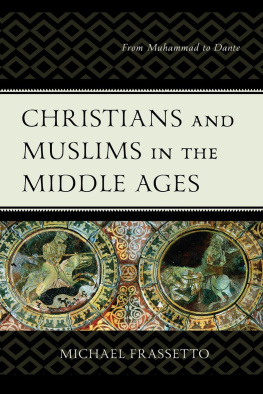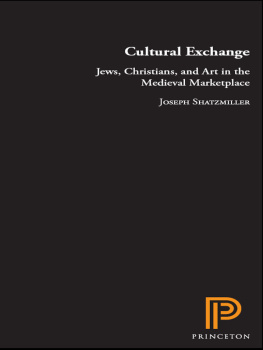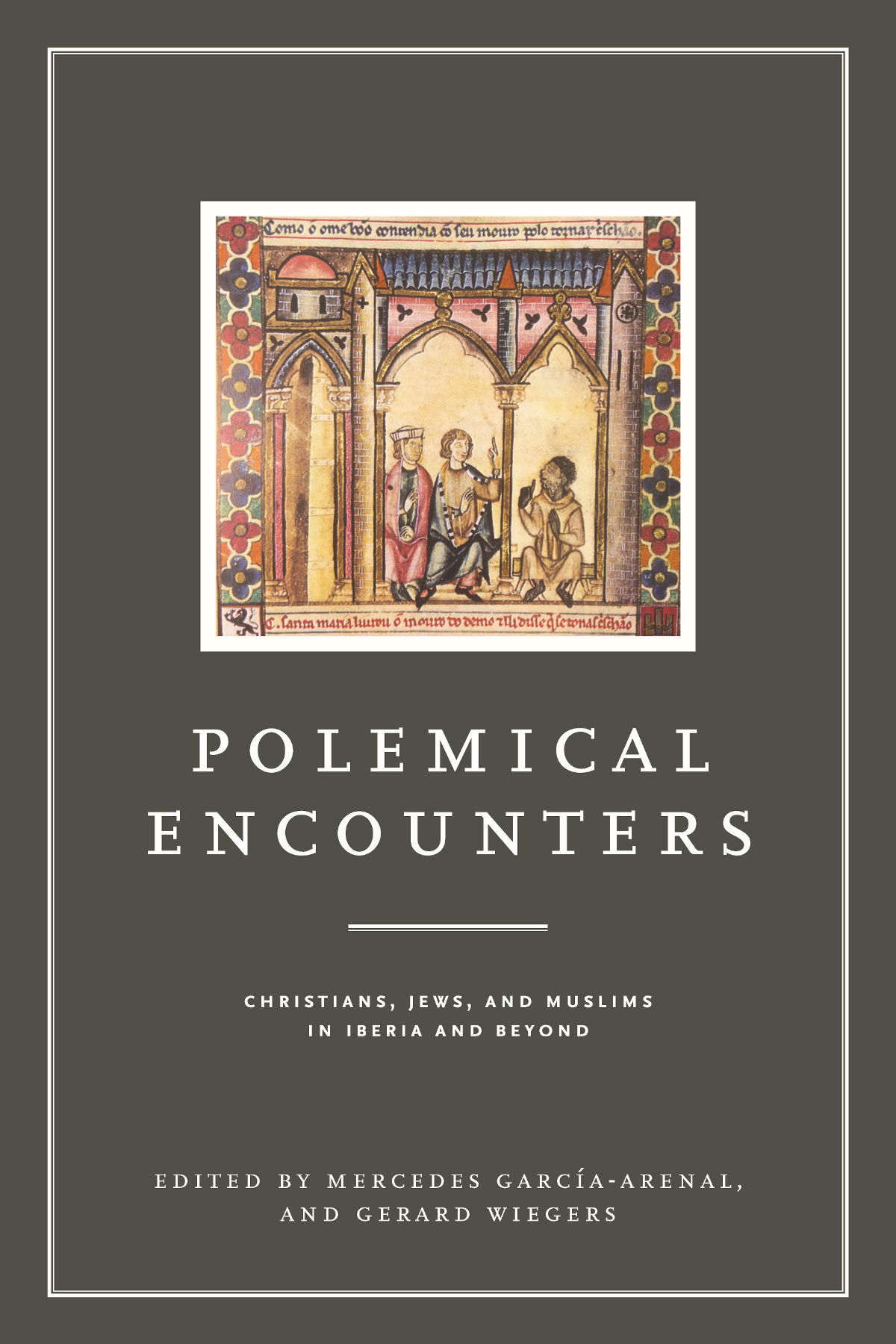
IBERIAN ENCOUNTER AND EXCHANGE,
4751755
SERIES EDITORS
Erin Kathleen Rowe
Michael A. Ryan
The Iberian Peninsula has historically been an area of the world that fostered encounters and exchanges among peoples from different societies. For centuries, Iberia acted as a nexus for the circulation of ideas, people, objects, and technology around the premodern western Mediterranean, Atlantic, and eventually the Pacific. Iberian Encounter and Exchange, 4751755 combines a broad thematic scope with the territorial limits of the Iberian Peninsula and its global contacts. In doing so, works in this series will juxtapose previously disparate areas of study and challenge scholars to rethink the role of encounter and exchange in the formation of the modern world.
ADVISORY BOARD
Paul H. Freedman
Richard Kagan
Marie Kelleher
Ricardo Padrn
Teofilo F. Ruiz
Marta V. Vicente
OTHER TITLES IN THIS SERIES:
Thomas W. Barton, Contested Treasure: Jews and Authority in the Crown of Aragon
Polemical Encounters
Christians, Jews, and Muslims in Iberia and Beyond
EDITED BY MERCEDES GARCA-ARENAL AND GERARD WIEGERS
The Pennsylvania State University Press
University Park, Pennsylvania
Library of Congress Cataloging-in-Publication Data
Names: Garca-Arenal, Mercedes, editor. | Wiegers, Gerard Albert, 1959 editor.
Title: Polemical encounters : Christians, Jews, and Muslims in Iberia and beyond / Mercedes Garca-Arenal and Gerard Wiegers, editors.
Other titles: Iberian encounter and exchange, 4751755.
Description: University Park, Pennsylvania : The Pennsylvania State University Press, [2018] | Series: Iberian encounter and exchange, 4751755 | Most of the chapters collected here were presented as papers at the conference Polemical Encounters: Polemics between Christians, Jews, and Muslims in Iberia and Beyond, which took place at the Consejo Superior de Investigaciones Cientficas (CSIC) in Madrid in October 2014... Other chapters included here were presented afterward at the monthly CORPI seminar and added to the volume.Acknowledgements. | Includes bibliographical references and index.
Summary: A collection of essays exploring the polemical encounters in the fields of religion and culture that took place among Jews, Christians, and Muslims in the Iberian Peninsula between the late Middle Ages and the seventeenth centuryProvided by publisher.
Identifiers: LCCN 2018036210 | ISBN 9780271081212 (cloth : alk. paper)
Subjects: LCSH: Christianity and other religionsIberian PeninsulaIslamHistoryCongresses. | Christianity and other religionsIberian PeninsulaJudaismHistoryCongresses. | IslamRelationsChristianityHistoryCongresses. | IslamRelationsJudaismHistoryCongresses. | JudaismRelationsChristianityHistoryCongresses. | JudaismRelationsIslamHistoryCongresses. | Iberian PeninsulaCivilizationCongresses. | PolemicsCongresses.
Classification: LCC BP172 .P655 2018 | DDC 201/.50946-dc23
LC record available at https://lccn.loc.gov/2018036210
Copyright 2019 The Pennsylvania State University Press
All rights reserved
Published by The Pennsylvania State University Press,
University Park, PA 16802-1003
The Pennsylvania State University Press is a member of the Association of University Presses.
Contents
Thomas E. Burman
Antoni Biosca i Bas and scar de la Cruz
Mnica Colominas Aparicio
Linda G. Jones
Daniel J. Lasker
Davide Scotto
Mercedes Garca-Arenal
Borja Franco Llopis
Pieter Sjoerd van Koningsveld and Gerard Wiegers
Ryan Szpiech
John Dagenais
Teresa Soto
Carsten Wilke
Most of the chapters collected here were presented as papers at the conference Polemical Encounters: Polemics between Christians, Jews, and Muslims in Iberia and Beyond, which took place at the Consejo Superior de Investigaciones Cientficas (CSIC) in Madrid in October 2014. This conference was organized by the editors of this volume under the auspices of the European Research Councils Advanced Grant project, European Unions Seventh Framework Programme (FP7/200713) / ERC Grant Agreement 323316, project CORPI (Conversion, Overlapping Religiosities, Polemics, Interaction: Early Modern Iberia and Beyond), led by Principal Investigator Mercedes Garca-Arenal. Other chapters included here were presented afterward at the monthly CORPI seminar and added to the volume. Another collection of essays that grew out of the same conference has been published as a special issue of the journal Medieval Encounters (vol. 24, 2018) dedicated to Interreligious Encounters in Polemics between Christians, Muslims and Jews in Iberia and Beyond and is complementary to the present volume: for this issue, we chose the essays dedicated to the dialogical aspects of polemics, while in the present book, we focus on aggressive texts that aim at rising barricades between religious groups. CORPI has produced another book that also deals, in part, with polemics: After Conversion: Iberia and the Emergence of Modernity, edited by Mercedes Garca-Arenal and published in Leiden by Brill in 2016.
We want to acknowledge here the contributions, through discussion and debates, of all those who participated in the conference, including those who participated orally and contributed neither to this volume nor to the special issue of Medieval Encounters: Alex Novikoff, Harvey J. Hames, Piero Capelli, Samir Kaddouri, Nuria Gmez Llauger, Raul Platas Romero, Cndida Ferrero Hernndez, Joan-Pau Rubis, Claude B. Stuczynski, and Emanuele Colombo. We also gratefully mention the invaluable work done by our American editor, Deirdre Casey, and Teresa Madrid lvarez-Pier, who compiled the bibliography and indexes. And last, our heartfelt thanks to the two anonymous readers who suggested changes and corrections.
This book focuses on polemical encounters in the field of religion and culture that took place in the Iberian Peninsula between the late Middle Ages and the seventeenth century. Polemic was not a term used in the Middle Ages; it only begins to appear in the sixteenth century to denote a particular kind of writing dedicated to debate between competing (religious or philosophical) ideas.that sense, the term polemical encounters will serve to shift our attention away from the singularity of the historical case and the specificity of the genre of religious dispute (disputatio, apologia, confutatio, humanist dialogues, martyrologies, Counter-Reformation sermons, the spiritual autobiographies of converts, devotional images, and many others that are discussed in the different chapters of this book). Instead, our focus on the polemical encounter will draw our view to the larger cultural and intellectual dynamics of the conflicts that marked relations among Jews, Christians, and Muslims in Iberia in its Mediterranean context. We want to approach these polemical conflicts in a comparative perspective and consider polemics not only as part of a theological discourse but also as a form of social practice that carried with it real consequences for interreligious relations.
Our comparative approach brings us to consider here not merely attacks by Christians on Jews or Muslims followed by counterattacks against Christians. Jews and Muslims also wrote polemics on their own initiative against Christianity and against each other. We say attacks because texts of polemics are aggressive and vituperative in nature. Medieval and early modern polemical texts are produced within the framework of exclusive prophetic religions. Each of the three religions played a persistent role in the entangled sacred histories and apologetic discourses of the others, challenging or establishing some salvation histories as superior. We need not insist on what Jan Assman has defined as the exclusive and polemical stance of monotheism. Monotheisms vindicate the superiority of their own prophecies and assert the supremacy and uniqueness of one revelation, which could itself be presented as a polemical text.
Next page
